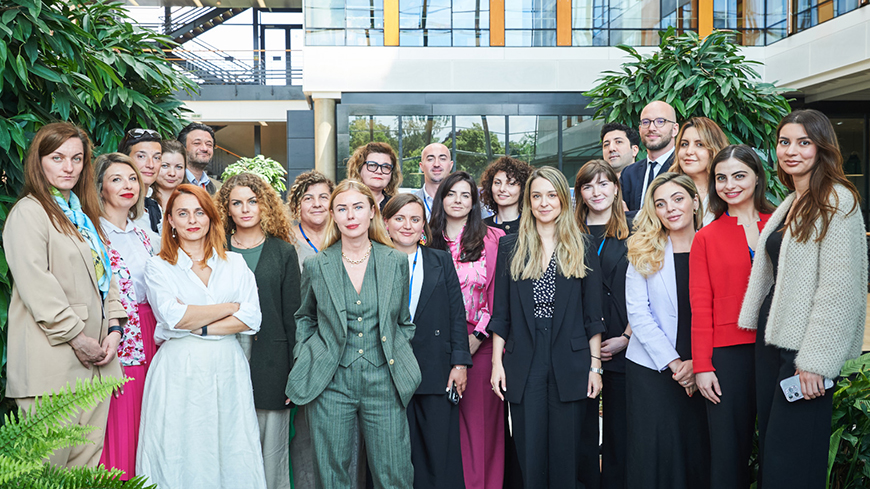The Division for Cooperation on Freedom of Expression assists the Council of Europe member States and beyond in enhancing their policies, legislation, environments and capacities in freedom of expression, media, and access to information, in line with the European standards.
The Division held its annual Summer School on 4-6 June 2024 in Strasbourg. 26 staff members from headquarters and field offices from 12 countries discussed the latest development and possibilities for cooperation in the field with their colleagues from the CDMSI Secretariat (Steering Committee on Media and Information Society), the Platform for Safety of Journalists, the European Audiovisual Observatory, the Directorate of Programme Co-ordination and the Campaign for Safety of Journalists.
Participants engaged in discussions on implementing new standards, such as the Recommendation CM/Rec(2024)2 on countering the use of strategic lawsuits against public participation (SLAPPs), and discussed cooperation in emerging areas such as green journalism and environmental SLAPPs, gender mainstreaming in the media, and the impact of artificial intelligence on freedom of expression.
A highlight of the event was the visit to the European Court of Human Rights, where the team interacted with judges and lawyers regarding the Court's case law related to freedom of expression, the right to private life, and the digital expansion of social media.
The team received updates on communication, administrative, and financial procedures from their colleagues. The event was also an opportunity for teambuilding and the development of synergies between projects. The event concluded with a discussion led by Marja Ruotanen, Director General for Democracy and Human Dignity, who stressed the importance of the Council of Europe’s commitment to protect democracy through freedom of expression.
The Division for Cooperation on Freedom of Expression works with ministries, parliaments, audio-visual regulators, judiciary, law enforcement, journalists, self-regulatory bodies, media watchdogs and civil society organisations. Its projects include advising on policies and legal frameworks, as well as providing capacity building and training in the following areas:
- Promoting the role of media in a democratic society
- Safeguarding media pluralism, diversity and transparency of media ownership
- Aligning the national legal framework and practice with the standards of the Council of Europe and the case-law of the ECtHR related to freedom of expression (article 10 of the ECHR)
- Strengthening governance of public service media
- Reinforcing independence and capacity of the national regulatory authorities in the age of digital transformation
- Promoting media literacy
- Fighting disinformation
- Combating hate speech
- Improving quality of journalism in the areas of conflict and sensitive reporting, media coverage of sports and elections, green journalism
- Ensuring safety of journalists and media actors, including in times of war and conflicts
- Advising on anti-SLAPPs (strategic lawsuits against public participation) legislation and defamation legal framework and practice
- Ensuring access to information in line with the Council of Europe Convention on Access to Official Documents (the Tromsø Convention)
- Promoting gender equality in media




